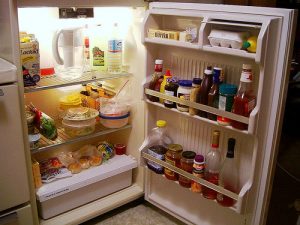Good Sleeping Habits: Can Too Little Sleep Be Causing You To Binge?
 Could too little sleep be making you eat more? Recent research has shown that too little sleep may affect the food choices we make and how much we eat throughout the day.
Could too little sleep be making you eat more? Recent research has shown that too little sleep may affect the food choices we make and how much we eat throughout the day.
These recent findings can be particularly important for people who are struggling with an eating disorder, and it goes to show how important sleep is when it comes to overall health.
Sleep, Hormone Changes and Antioxidants
Researchers are not yet sure how inadequate sleep relates to food preferences and eating habits, but some lab studies have found that shorter periods of sleep were associated with greater hunger. In particular, researchers noticed that people craved more high-fat, high-carbohydrate foods when they didn’t get enough sleep. Additionally, the study found that people who slept less also had lower levels of leptin, otherwise known as the feel-full hormone, and had higher levels of ghrelin, the hunger hormone.
Two new studies looked into how sleep duration and the timing of sleep affect a person’s nutrient intake and dietary patterns. A study carried out by researchers from the University of Pennsylvania and the University of Chicago evaluated the associations between habitual sleep duration and nutrient intake in a sample of 5,587 adults, aged 18 and older, who participated in the 2007-2008 National Health and Nutrition Examination Survey (NHANES).
The study found that short sleepers, people who slept six hours or less on average, had the lowest overall calorie intake, but consumed slightly more calories than typical sleepers, who slept on average eight hours a night. However, the study also found that less sleep can affect more than a person’s appetite. Very short sleepers, people who slept five hours or less, consumed less lycopene, a plant chemical that can work against cancer and that acts as an antioxidant to protect against cell damage. Short sleepers also consumed less vitamin C and selenium, two key antioxidant nutrients needed in a person’s diet.
Sleep and Eating Habits
In a different study, researchers assessed how the timing of sleep affected dietary patterns in 52 male and female adults who were classified as either. Researchers found that over seven days, late sleepers consumed an average of 248 more calories per day than normal sleepers. Additionally, the study found the majority of those extra calories were consumed at or after dinner. Late sleepers also seemed to make more poor food choices than normal sleepers. The study concluded that the increased calorie intake of late sleepers could contribute to weight gain of two or more pounds per month, unless physical activity was increased to compensate.
There are many things you can do to help you get a better night’s rest, such as sticking to a regular sleeping schedule, darkening your room, and limiting electronics and other stimulation close to bedtime. However, many things can keep us up at night, like stress. To balance this out, try to plan your meals, and aim to eat three meals per day with one snack. Try to take a break as well; instead of eating at night, close your eyes for ten minutes and it will make a difference. Lastly, take up resistance training, which burns more calories than running or aerobics.
Source: USNews.com
 Eating Disorder Self Test. Take the EAT-26 self test to see if you might have eating disorder symptoms that might require professional evaluation. All answers are confidential.
Eating Disorder Self Test. Take the EAT-26 self test to see if you might have eating disorder symptoms that might require professional evaluation. All answers are confidential.